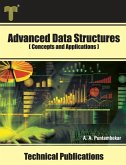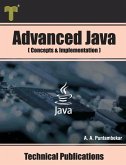The joint close air support (JCAS) community is struggling to determine future close air support (CAS) employment tactics, techniques, and procedures (TTPs). Since 1996, the JCAS community, lead by an Office of the Secretary of Defense JCAS Joint Test Force, has tried to improve JCAS by proposing changes in training, doctrine, equipment and organization. Differing service perspectives and the advent of new technologies make agreement on necessary doctrinal changes tenuous. The primary question set out in this thesis asks, Are the changes in terminal attack control framework proposed in the draft JP 3-09.3 necessary and sufficient for current and near future operations? The paper examines contentious issues such as battlefield air interdiction (BAI), the fire support coordination line (FSCL), CAS definitions, and the purpose of maintaining separate categories of control. It then structures a qualitative comparative analysis of the current and proposed terminal attack control procedural frameworks based upon the criteria of simplicity, completeness, and utility. The evidence of this study suggests that proposed doctrinal changes are necessary, but the overall "utility" of the draft terminal attack control framework is not sufficient. This study makes five recommendations for improvements in JCAS doctrine.








